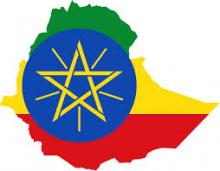Resource information
This Proclamation grants the power to specified local public bodies to expropriate rural or urban landholdings for public purpose where it believes that it should be used for a better development project to be carried out by public entities, private investors, cooperative societies or other organs, or where such expropriation has been decided by the appropriate higher regional or federal government organ for the same purpose. The Proclamation sets out the procedure of expropriation and provides with respect to compensation (which shall be paid in advance) and appeals. Displacement compensation based on average annual income from land shall be paid to rural landholders that are permanently or temporarily expropriated. Substitute land may be made available.
Implemented by: Payment of Compensation for Property Situated on Landholdings Expropriated for Public Purposes Council of Ministers Regulations (No 135/2007). (2007-07-04)



